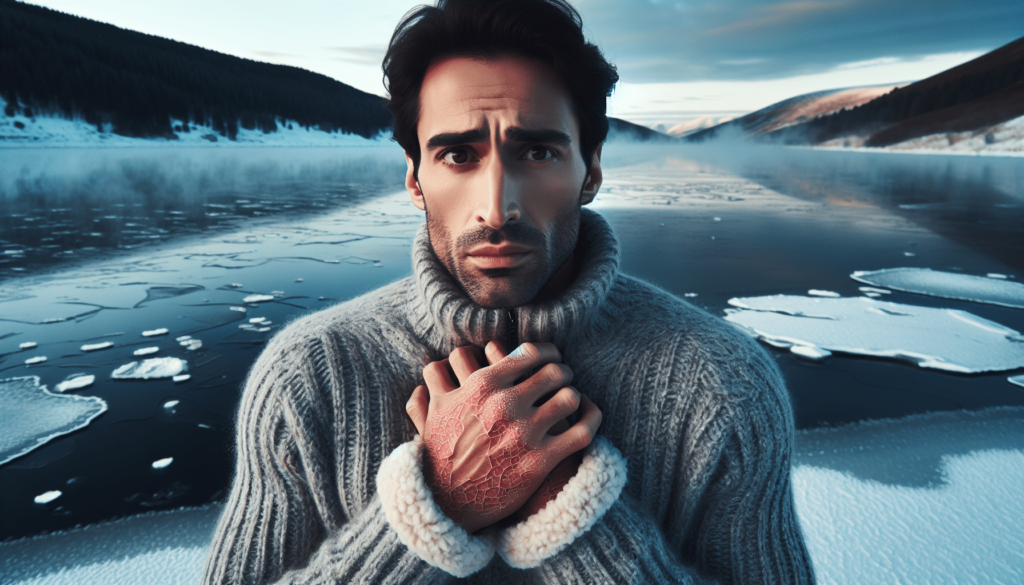Welcome to our article on who should not do cold water therapy. While cold water therapy can have numerous health benefits, it may not be suitable for everyone. It’s important to consider certain factors before diving into the chilly waters. Let’s explore some individuals who may need to steer clear of cold water therapy to ensure a safe and enjoyable experience for everyone.
Who Should Not Do Cold Water Therapy?
Have you been considering trying out cold water therapy but are unsure if it is safe for you? In this article, we will discuss who should avoid cold water therapy and why. By understanding who should not do cold water therapy, you can make an informed decision about whether or not it is the right choice for you. Let’s dive in!
Medical Conditions That May Prohibit Cold Water Therapy
Before engaging in cold water therapy, it is important to consider any medical conditions you may have that could be adversely affected by exposure to cold water. It is crucial to consult with a healthcare professional before starting any new therapy, especially if you have any of the following medical conditions:
- Heart conditions
- Hypertension (high blood pressure)
- Respiratory conditions, such as asthma
- Raynaud’s disease
- Blood circulation issues
- Nerve damage or neuropathy
If you have any of these medical conditions, cold water therapy may not be safe for you. It is important to prioritize your health and well-being and consult with a healthcare provider to determine the best course of action for you.
Age Restrictions for Cold Water Therapy
While cold water therapy can be beneficial for many people, there are age restrictions to consider. Children and elderly individuals may be more vulnerable to the effects of cold water exposure, and extra precautions should be taken when considering cold water therapy for these age groups.
Children: It is generally not recommended for children under the age of 5 years old to participate in cold water therapy. Young children may have difficulty regulating their body temperature and may be more susceptible to hypothermia or other adverse effects of cold water exposure. If you are considering cold water therapy for a child, it is important to consult with a pediatrician before proceeding.
Elderly Individuals: Elderly individuals may also be at higher risk for adverse effects from cold water exposure, as their bodies may have a more difficult time regulating temperature. If you are an older adult considering cold water therapy, it is important to consult with your healthcare provider to determine if it is safe for you.

Pregnancy and Cold Water Therapy
Pregnant individuals should exercise caution when considering cold water therapy. While some pregnant women may find cold water therapy to be beneficial for reducing inflammation and swelling, it is essential to consult with a healthcare provider before engaging in this practice. Pregnancy can bring about changes in blood pressure and circulation, which may be exacerbated by exposure to cold water.
If you are pregnant and considering cold water therapy, it is crucial to discuss the potential risks and benefits with your obstetrician or midwife. They can provide guidance on whether cold water therapy is safe for you and your baby during pregnancy.
Psychological Considerations for Cold Water Therapy
In addition to physical health considerations, it is essential to take into account your psychological well-being before engaging in cold water therapy. Cold water exposure can be a shock to the system and may exacerbate feelings of anxiety or stress in some individuals.
If you have a history of panic attacks, anxiety disorders, or other mental health conditions, it is important to proceed with caution when considering cold water therapy. It may be helpful to consult with a mental health professional to determine if cold water therapy is a suitable practice for you.

Medications That May Interact with Cold Water Therapy
Certain medications may interact with cold water therapy and make it unsafe for some individuals. If you are taking any medications, it is important to consult with your healthcare provider before engaging in cold water therapy to ensure that there are no potential interactions or contraindications.
- Beta-blockers
- Antidepressants
- Blood thinners
- Diuretics
If you are taking any of these medications, it is crucial to discuss your participation in cold water therapy with your healthcare provider. They can provide guidance on whether it is safe for you to engage in cold water therapy while taking these medications.
Precautions for Cold Water Therapy
If you have determined that cold water therapy is safe for you based on the considerations outlined above, it is essential to take precautions to ensure a safe and beneficial experience. Here are some tips to help you make the most of your cold water therapy practice:
- Start slowly: Begin with short exposure times and gradually increase as your body acclimates to the cold water.
- Stay within your comfort zone: Listen to your body and do not push yourself beyond your limits.
- Have a support system: Ensure that someone is present when you engage in cold water therapy, especially if you are new to the practice.
- Stay hydrated: Drink plenty of water before and after your cold water therapy sessions to prevent dehydration.
- Dress appropriately: Wear warm clothing and layers to keep your body warm after exiting the cold water.
- Pay attention to warning signs: If you experience dizziness, shortness of breath, or any other concerning symptoms, exit the cold water immediately and seek medical attention if necessary.
By taking these precautions and listening to your body, you can safely enjoy the benefits of cold water therapy and support your overall health and well-being.
Conclusion
Cold water therapy can be a beneficial practice for many individuals, but it may not be suitable for everyone. Before engaging in cold water therapy, it is crucial to consider your medical history, age, pregnancy status, psychological well-being, and any medications you may be taking. By consulting with your healthcare provider and taking necessary precautions, you can determine if cold water therapy is a safe and effective practice for you. Remember, your health and safety should always come first.

